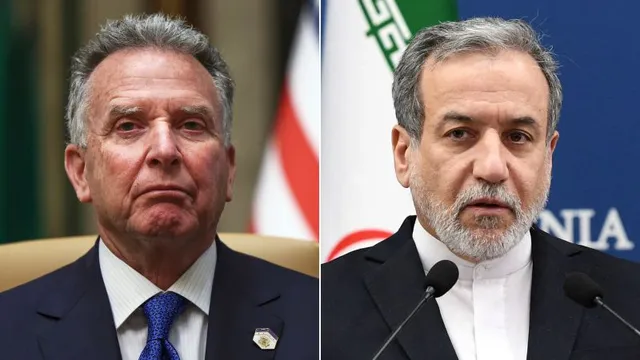
Iran and the US negotiate over nuclear program in Rome
2025-04-22 05:04- The U.S. and Iran held direct talks in Rome to address Iran's nuclear program, following a previous round in Muscat.
- Both countries are attempting to find common ground amid skepticism regarding Iran's willingness to compromise.
- The ongoing negotiations are critical as both nations aim for a resolution that could alleviate tensions and stabilize the region.
Express your sentiment!
Insights
Iran and the United States have engaged in crucial negotiations regarding Tehran's expanding nuclear capabilities, holding their second round of talks in Rome on Saturday. This comes after a previous meeting in Muscat, Oman, which was described as constructive by both parties. Iranian Foreign Minister Abbas Araghchi leads the talks for Iran, while U.S. Middle East envoy Steve Witkoff represents the American side. Both nations are attempting to bridge their longstanding disputes over Iran's nuclear program, which has seen Iran exceeding the uranium enrichment limits set by the 2015 nuclear deal. Amid pressures from President Donald Trump to deter Iran's nuclear aspirations through potential military action, both sides are navigating significant diplomatic challenges. These diplomatic efforts are especially crucial considering the heightened tensions in the Middle East, involving issues related to the Israel-Hamas conflict and U.S. airstrikes on Iranian-backed groups. The negotiations occur under a backdrop of skepticism regarding Iran's intentions, as the country has indicated it would not concede on core aspects of its nuclear program without solid assurances from the U.S. to uphold any new agreement. They aim for a resolution that could potentially stabilize the ongoing crises and economic issues faced by Iran, including its plummeting currency and internal unrest regarding governmental policies.
Contexts
The history of Iran's nuclear program negotiations is complex and multifaceted, reflecting the geopolitical tensions in the Middle East and international concerns over nuclear proliferation. Iran's nuclear ambitions date back to the 1950s, initially focused on civil nuclear energy development, supported by Western countries, primarily the United States. However, the Islamic Revolution in 1979 shifted Iran's stance, and by the early 2000s, suspicions arose regarding its intentions to develop nuclear weapons. The International Atomic Energy Agency (IAEA) began investigating Iran's facilities, leading to a series of negotiations and conflicts that have shaped the current landscape of its nuclear program. The pivotal moment came in 2006 when the UN Security Council imposed sanctions on Iran for its refusal to suspend uranium enrichment. This period marked the beginning of formal negotiations involving the P5+1 group, composed of China, France, Russia, the United Kingdom, the United States, and Germany. The negotiations were characterized by a series of ups and downs, with Iran facing increasing economic sanctions while simultaneously engaging in talks to obtain economic relief in exchange for curbing its nuclear activities. The diplomatic efforts culminated in 2015 with the Joint Comprehensive Plan of Action (JCPOA), an ambitious agreement that aimed to limit Iran's nuclear program in return for the lifting of sanctions. However, the 2018 withdrawal of the United States from the JCPOA under President Donald Trump abruptly changed the dynamics of the negotiations. This withdrawal led to the reimposition of stringent sanctions on Iran, exacerbating tensions and prompting Iran to gradually retreat from its commitments under the agreement. The Iranian government began enriching uranium beyond the agreed limits, which raised alarms in the international community and prompted European nations and other signatories to seek a resolution that could restore the JCPOA framework. Efforts to revive the negotiations from 2021 onward have been fraught with challenges, including political divisions within Iran and the changing landscape of U.S. domestic politics. As of 2025, indirect negotiations continue, with various stakeholders engaging in diplomatic outreach to find common ground. The consequences of these discussions are critical not only for Iran and its nuclear aspirations but also for regional stability and global non-proliferation efforts. Ultimately, the trajectory of Iran's nuclear negotiations remains a key issue in international relations, where the balance between diplomacy and security continues to be tested.